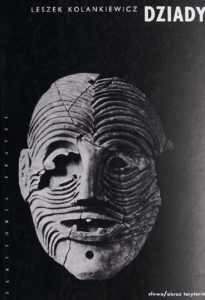11. Researching Books: Society and Literature
 In research on bookss, both texts and people are of key importance. We adopt an anthropological perspective that views language as inherently connected with the people who use it. We approach various media through which words manifest themselves – handwritten and printed texts – from both theoretical and historical viewpoints. We discuss poetry, literary prose, journalism, essays, memoirs and scholarly prose, as well as the social contexts in which these are produced and which they influence.
In research on bookss, both texts and people are of key importance. We adopt an anthropological perspective that views language as inherently connected with the people who use it. We approach various media through which words manifest themselves – handwritten and printed texts – from both theoretical and historical viewpoints. We discuss poetry, literary prose, journalism, essays, memoirs and scholarly prose, as well as the social contexts in which these are produced and which they influence.
Cultural studies demonstrate how literary fiction and, more broadly, writing habits, reflect social thought and cultural practices. A. Mencwel, in his study titled Przedwiośnie czy potop (The Spring to Come or the Deluge), identifies and interprets two distinct attitudes characteristic of Polish culture – “reopening old wounds” and “solacing the heart”. In a similar vein, M. Litwinowicz-Droździel, in her book titled Zmiana, której nie było. Trzy próby czytania Reymonta (The Change That Was Not: Three Attempts at Reading Reymont), examines the perceptions of the nineteenth century and modernity, and their relation to the history of Polish culture.
L. Kolankiewicz has read Adam Mickiewicz’s Dziady not only as an arch-drama of Polish romanticism but also as an attempt to design a broader cultural project. In his book titled Dziady. Teatr święta zmarłych (Dziady: Theatre of the Day of the Dead), he has, in turn, discussed not only the text of the drama and its performances but also the Proto-Slavic sources of the ritual in the context of, among others, the cult of Dionysus and the Brazilian cult of candomblé. This path-breaking approach in Polish theatre studies and theatre history has given rise to a new perspective on cultural research, namely the anthropology of performance.
We also study the creative processes that bring books into being. . P. Rodak, in his book titled Między zapisem a literaturą. Dziennik polskiego pisarza w XX wieku (Between Recording and Literature: A Polish Writer’s Diary in the Twentieth Century), discusses the diary as a reflection of an everyday writing practice rather than a text type, a discourse mode or a literary genre. In turn, A. Karpowicz, in her book titled Białoszewski temporalny (czerwiec 1975 – czerwiec 1976) (Temporal Białoszewski (June 1975 – June 1976)), explores the concept and the role of time in the poet’s work and life – the time of creation, the time of writing and the time of experience.
(Photo by M. Kaźmierczak)
